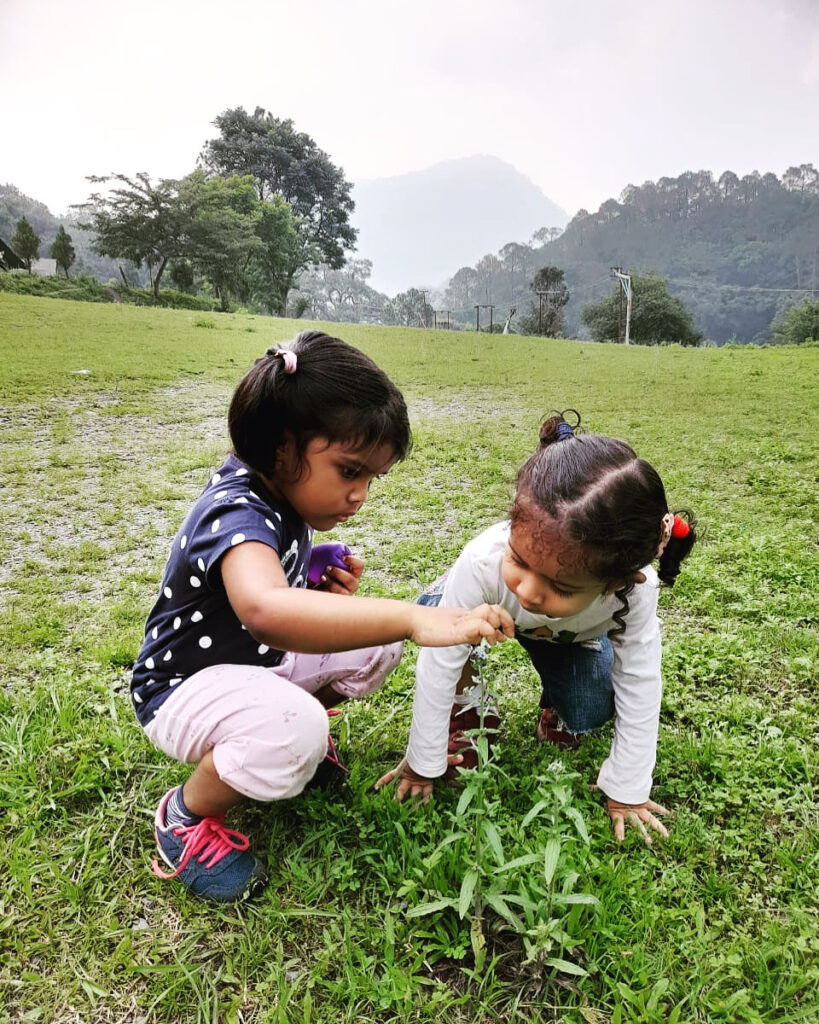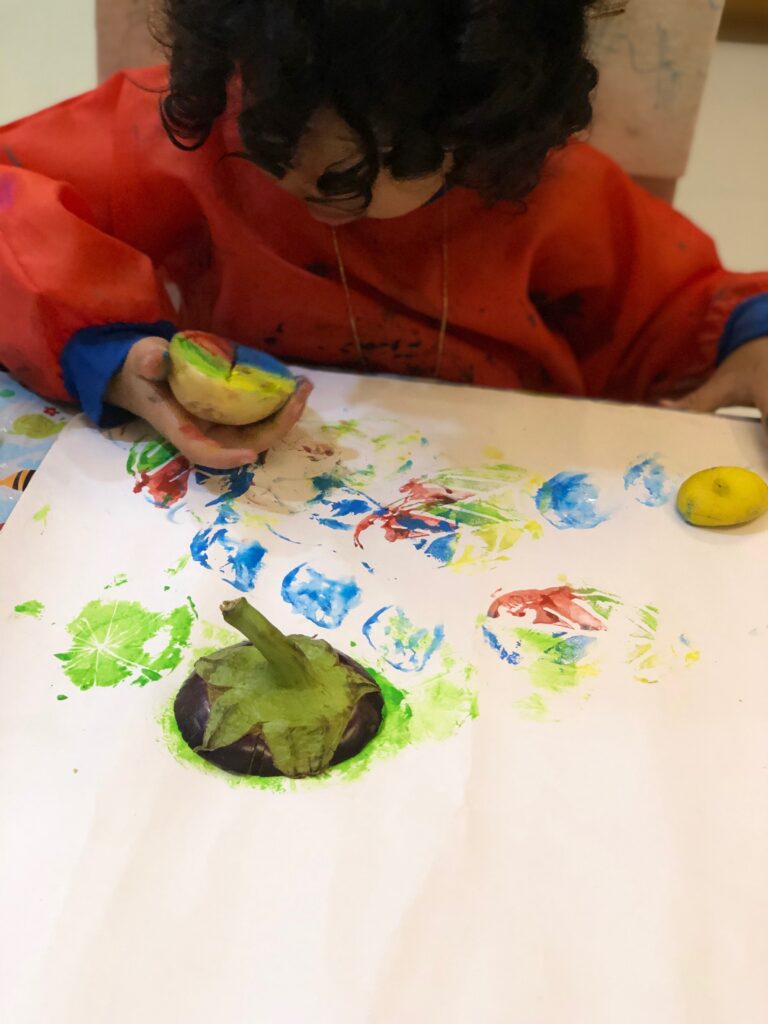
There are really super fun ways to teach the alphabets to our kids. When I was in school, things were more “simple” some would say, “boring” the others would say. Rote learning was the only way to go about learning basic letters or early math. So, whether the child understood to not. ‘A’ for apple was the standard, so the child couldn’t comprehend ‘A’ could be for alligator too. The concept was more digress in their head. So a young child could easily narrate A- Z with a word related to each, while they would barely understand the concept on the whole. In most schools even today, memorisation could be the only form of learning.
While there are many other school realising how there are many different ways of learning; teaching is only one of them. We learn a great deal on our own, through independent study or play. We learn a great deal interacting with others informally — sharing what we are learning with others and vice versa. We learn a great deal by doing, through trial and error. Learning isn’t just the academics or grades/ranks we receive in an institution.
To a certain extent, we as parents are at fault at it. Why you think, I would say because we stress too much on the outcome and want the result quickly. Everyday we want to know what the child has “gained” or “learned”. So, a deeper level of understanding is not our ultimate goal, it is what they can memorise right now and show us now or the world, the teachers, the grandparents what the child has learned.
Our understanding of learning a concept is based on a certain level of performance, whereas learning isn’t something you’d display on the instant, it is soaking in to the concept and it will come out – it is bound to come out, but in its own time & space.
On my early years of working with preschool kids, I had parents who would ask me at the gate everyday “ so what did he learn today” and ask the child too, “ What did the teacher teach you today” ?Early education is so much more holistic & wholesome than something you can put in a platter and showcase. When a child goes to the sandpit and scoops and picks the sand into the jar, he is practicing his/her gross motor skill. When the child is sitting and listening to the story, his/her mind is opened to wonder and imagination to levels even adults can phantom, when the child sits in a circle and chats and eats with his/her friends or siblings they are learning social skills and mannerisms- now all this is learning are part of growing up, which is inter wined to a wholesome learning. So, may be when the child goes home he/she may not remember we did the letter ‘A’ that day but the child would remember that he/she read the book about Ally the Alligator. And really there are no readymade answers I as a teacher should be giving, or the child would have to answer to the parent. While there were some who would narrate the activity done on that day and others would not say anything at all, so who would be qualified as someone who has better “learned”?
There are so many ways to invest in a child. They should learn at a very early stage of “schooling” that learning how to learn is largely their(kids) responsibility — with the help(system, teachers, parents) that is not imposed on them.

Objective of Education?
The objective of education is learning, not teaching. Though I have given an example of a general preschool environment, both my girls are homeschooled and I don’t think, they have missed out on any skill by a general standard.
I had a friend who would ask my daughter every time she called on phone ,
“ How was school today, so what did you learn”
And suddenly my daughter would look clueless and lost in thoughts.
Now that expression on the outside may look, she understood nothing or probably school wasn’t as worthwhile as on that day. But one day when my friend came over and would passed a comment:,
“ It suddenly started raining”
And instantly my daughter would reply to her and say,
“It wasn’t actually a sudden event, the sky dark which is an indication that it could have rained”
The weather looked different and “ did you know how does it rain, because of the heat from sun, the water rises up and its called evaporation and condenses in like a cloud which is further travelled by air and pours down like rain because there are too many droplets of water that cant be carried anymore, and did you know we probably have the same rain that the dinosaurs felt when they were there”
My friend stood there frozen, speechless with raised eyebrows and commented me, “she is such a smart one”. And that is my point of enjoying the stars on my shoulder as a teacher, but also for me to realise how much she has understood the water cycle as part of our science lesson we did weeks ago.
Things inside a child’s brain are far more complex than what we understand or perceive generally.
Here are some practical tips for helping your child learn:
- Show an interest in what your child is doing and learning by being a part of their play. A pretend tea party would be an ideal time to “teach” them all the etiquette for hosting and having a social event. Or when playing with play dough, you can take some dough and roll it out to a snake and say how S stands for “sssss…snake” and further you can name the snake, more more things with the letter S and dig deeper.
- Play rhyming games, letter games, and shape and number games with your child, and practise taking turns in games and activities. Games like hopscotch, scrabble, UNO, snake & ladders, tangram, Rocks paper scissors, sequence etc are not just fun but also learning mechanisms.
- Use simple language, and play with words and word meanings – for example, you could clap out the syllables of words or play word association games. There are tons of free materials available on google and Pinterest and if not, you can play with things at home. Am a big advocate of DIY(Do It Yourself) and Best Out of Waste and therefore always get creative and think outside the box. You can play Simon says when teaching verb or Noun.
- Keep reading to your child even when she can read for herself. Books + parents have the same goal- they make your child’s life so much more fruitful, wiser, fuller & enlightened. Of all the things you invest in your child, this should be of TOP PRIORITY. Read read read as much as you can.
- Make sure your child has time for free and unstructured play. This is my favourite part of the day, I get to write my blog, and they get to be in their imagination. I have set a dress up station, a kitchen set, tools, legos and whatever toys in their room, but the kind of things they come up with is not only entertaining for me but also quite a showcase of all the things they process. It gives them a chance to be creative and independent. So, early on make some space and encourage independent play time.
- Help your child discover what he’s good at by encouraging them to try lots of different activities. I hated art at school, as funny as it sounds, it was a subject that made me feel forced, I was expected to perform like a particular kid and I wasn’t a great artist, but I dared to pick up the brushes along with my daughter and realised how magical and therapeutic it could be if you enjoy what you do. I know enjoy watercolour paints and scribble a little here and there for fun.
So, expose your child to all genres, let them play a musical instrument, learn a particular kind of dance style, get into a dramatised play, change car tyres, sewing, bake, cook, write and basically involve in most part of life to give a fuller deeper understanding of what the world is made of.
“It is not that I’m so smart. But I stay with the questions much longer.”
― Albert Einstein